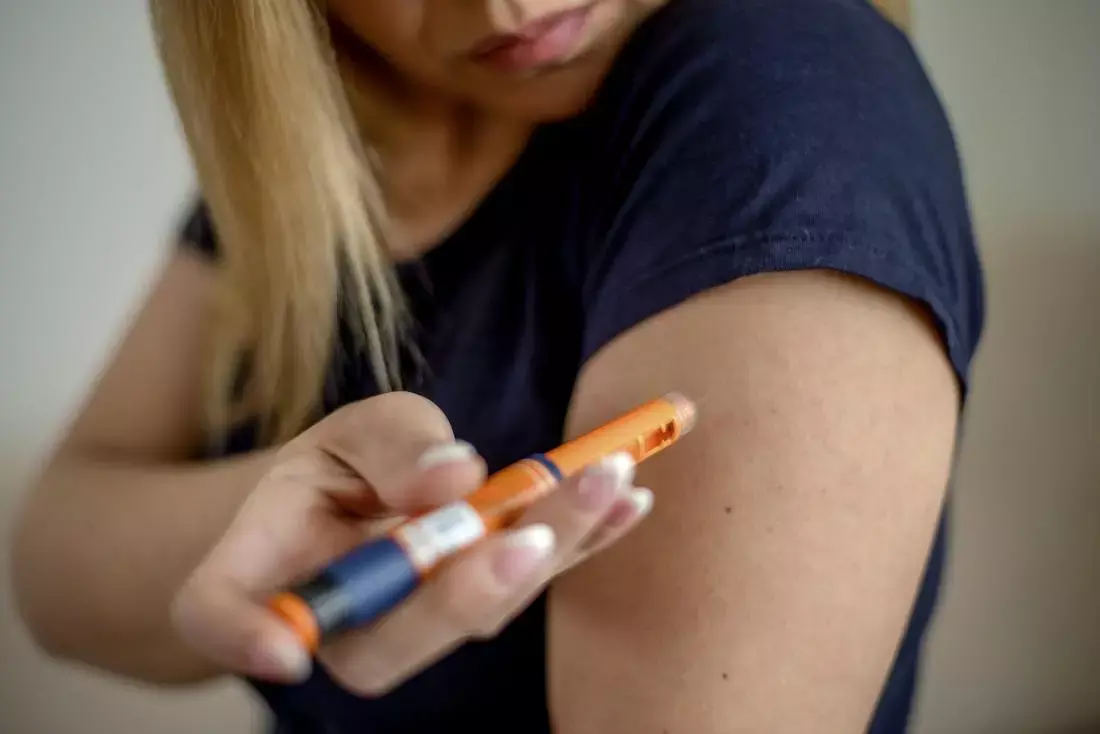- Home
- Medical news & Guidelines
- Anesthesiology
- Cardiology and CTVS
- Critical Care
- Dentistry
- Dermatology
- Diabetes and Endocrinology
- ENT
- Gastroenterology
- Medicine
- Nephrology
- Neurology
- Obstretics-Gynaecology
- Oncology
- Ophthalmology
- Orthopaedics
- Pediatrics-Neonatology
- Psychiatry
- Pulmonology
- Radiology
- Surgery
- Urology
- Laboratory Medicine
- Diet
- Nursing
- Paramedical
- Physiotherapy
- Health news
- Fact Check
- Bone Health Fact Check
- Brain Health Fact Check
- Cancer Related Fact Check
- Child Care Fact Check
- Dental and oral health fact check
- Diabetes and metabolic health fact check
- Diet and Nutrition Fact Check
- Eye and ENT Care Fact Check
- Fitness fact check
- Gut health fact check
- Heart health fact check
- Kidney health fact check
- Medical education fact check
- Men's health fact check
- Respiratory fact check
- Skin and hair care fact check
- Vaccine and Immunization fact check
- Women's health fact check
- AYUSH
- State News
- Andaman and Nicobar Islands
- Andhra Pradesh
- Arunachal Pradesh
- Assam
- Bihar
- Chandigarh
- Chattisgarh
- Dadra and Nagar Haveli
- Daman and Diu
- Delhi
- Goa
- Gujarat
- Haryana
- Himachal Pradesh
- Jammu & Kashmir
- Jharkhand
- Karnataka
- Kerala
- Ladakh
- Lakshadweep
- Madhya Pradesh
- Maharashtra
- Manipur
- Meghalaya
- Mizoram
- Nagaland
- Odisha
- Puducherry
- Punjab
- Rajasthan
- Sikkim
- Tamil Nadu
- Telangana
- Tripura
- Uttar Pradesh
- Uttrakhand
- West Bengal
- Medical Education
- Industry
T1D Patient Achieves Full Insulin Independence After Stem Cell Transplant: case study

A stem-cell treatment restored insulin production and glucose control in two patients with type 1 diabetes (T1D), a researcher reported during the American Diabetes Association (ADA) annual meeting.
Cadaveric islet transplantation can achieve glycemic control in T1D, but cadaveric islet quantity and quality are limiting. We report the first patient-administered VX-880, an investigational allogeneic stem cell-derived, fully differentiated, pancreatic islet cell replacement therapy.
Case:
A 64-year-old male with a 40-year history of T1D complicated by impaired awareness of hypoglycemia with 5 severe hypoglycemic events (SHEs) the year before VX-880 was receiving 34U insulin/day at baseline (HbA1c 8.6%; undetectable fasting and stimulated C-peptide). After a single VX-880 infusion at half the target dose, fasting C-peptide was detected by Day 29 and increased rapidly; HbA1c and daily insulin decreased in parallel. At Day 90, robust increases in fasting and stimulated C-peptide, improved glycemic control, and a substantial reduction in exogenous insulin administration were observed and continued to improve through the last time point assessed
VX-880 was generally safe and well-tolerated; most AEs were mild or moderate and consistent with immunosuppression. The most common AEs were SHEs (not serious or related to VX-880), which occurred in the perioperative period. There was 1 serious AE of rash (mild, unrelated to VX-880), which was resolved.
Thus, these unprecedented results are the first evidence that stem cell-derived islets can restore insulin production and glucose control in T1D. The study continues to enrol and dose patients.
Reference:
259-OR: Stem Cell-Derived, Fully Differentiated Islet Cells for Type 1 Diabetes by JAMES F. MARKMANN et al. published in the American Diabetes Association.
https://doi.org/10.2337/db22-259-OR
Keywords:
American Diabetes Association, 259-OR, Stem Cell–Derived, Fully, Differentiated, Islet, Cells, Type 1 Diabetes, JAMES F. MARKMANN, ALI NAJI; MICHAEL R. RICKELS; MARIA ALBA; GAUTHAM MARIGOWDA; LEORAH ROSS; CHENKUN WANG; FELICIA PAGLIUCA; BASTIANO SANNA; LESLIE S. KEAN; ANNE L. PETERS; PIOTR WITKOWSKI; CAMILLO RICORDI
Dr. Shravani Dali has completed her BDS from Pravara institute of medical sciences, loni. Following which she extensively worked in the healthcare sector for 2+ years. She has been actively involved in writing blogs in field of health and wellness. Currently she is pursuing her Masters of public health-health administration from Tata institute of social sciences. She can be contacted at editorial@medicaldialogues.in.
Dr Kamal Kant Kohli-MBBS, DTCD- a chest specialist with more than 30 years of practice and a flair for writing clinical articles, Dr Kamal Kant Kohli joined Medical Dialogues as a Chief Editor of Medical News. Besides writing articles, as an editor, he proofreads and verifies all the medical content published on Medical Dialogues including those coming from journals, studies,medical conferences,guidelines etc. Email: drkohli@medicaldialogues.in. Contact no. 011-43720751


